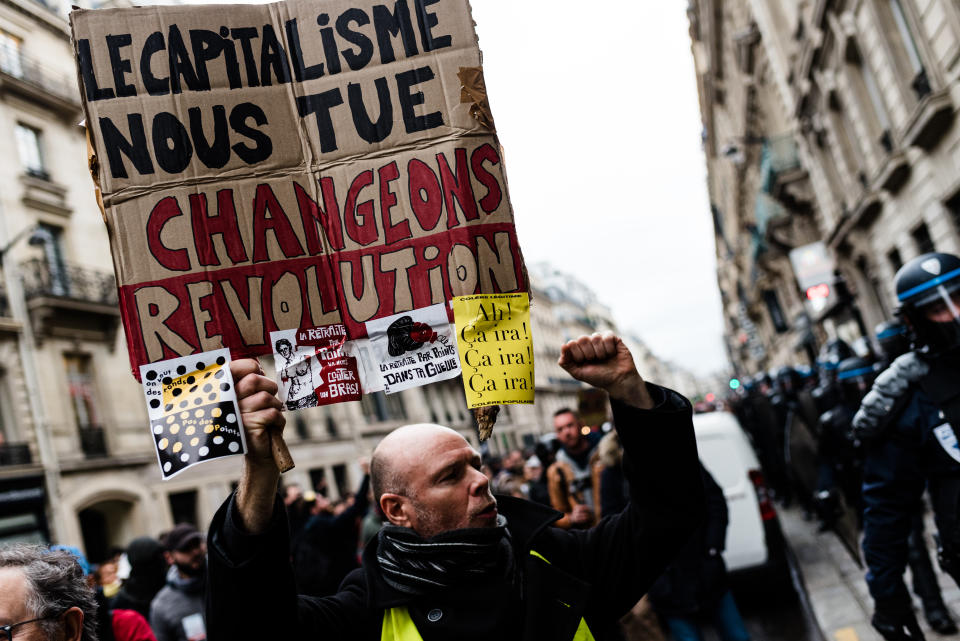Capitalism ‘does more harm than good’ — global survey reveals

Global leaders clustering at the World Economic Forum in Davos, Switzerland this week may disagree, but the latest survey from US public relations firm Edelman found that over half of people think that capitalism has failed them.
Edelman surveyed 34,000 people in 28 markets, including China and the US, between October and November 2019 for its Trust Barometer. It found that, overall, 56% of respondents agreed with the statement that “capitalism as it exists today does more harm than good in the world." In the 35-54 age group, that climbed to 59%.
The index measures the trust of the public in its core institutions: government, business, NGOs, and the media.
“We are living in a trust paradox,” said Edelman chief executive Richard Edelman. “Since we began measuring trust 20 years ago, economic growth has fostered rising trust. This continues in Asia and the Middle East but not in developed markets, where national income inequality is now the more important factor.”
Despite a strong global economy and near full employment, a majority of respondents in every developed market do not believe they will be better off in five years’ time, the survey said.
“Fears are stifling hope, and long-held assumptions about hard work leading to upward mobility are now invalid,” Edelman said.
READ MORE: World’s 2,153 billionaires richer than 60% of global population
Broadly, more than 80% of workers are worried about losing their jobs to the growing gig economy, recession, cheaper foreign competition, immigrants taking their jobs or their jobs being automated. Two-thirds feel technological change is happening too fast.
Incompetent and unethical
“People’s expectations of institutions have led us to evolve our model for measuring trust,” said Edelman. “Trust today is granted on two distinct attributes: competence (delivering on promises) and ethical behavior (doing the right thing and working to improve society). It is no longer only a matter of what you do — it’s also how you do it.”
READ MORE: World's elite head to Switzerland for Davos
He added that for many, businesses have taken over the role vacated by populist and partisan governments — and expectations on CEOs have changed to reflect that. More than 90% of employees say CEOs should speak out on issues of the day, including the ethical use of technology and income inequality, and 75% believe CEOs need to take the lead to make change instead of waiting on governments.
“It can no longer be business as usual, with an exclusive focus on shareholder returns,” Edelman said.
While none of the four institutions are regarded as both competent and ethical, business ranks by far the highest when it comes to competence. However, despite being perceived as incompetent and unethical, people trust the government more than twice as much as business when it comes to tackling wealth inequality and climate protection.
While fake news has largely damaged trust in the media — 57% said they don’t think the media is doing a good job at differentiating opinion from fact — news coverage is as important to people as ever.

 Yahoo Finance
Yahoo Finance 